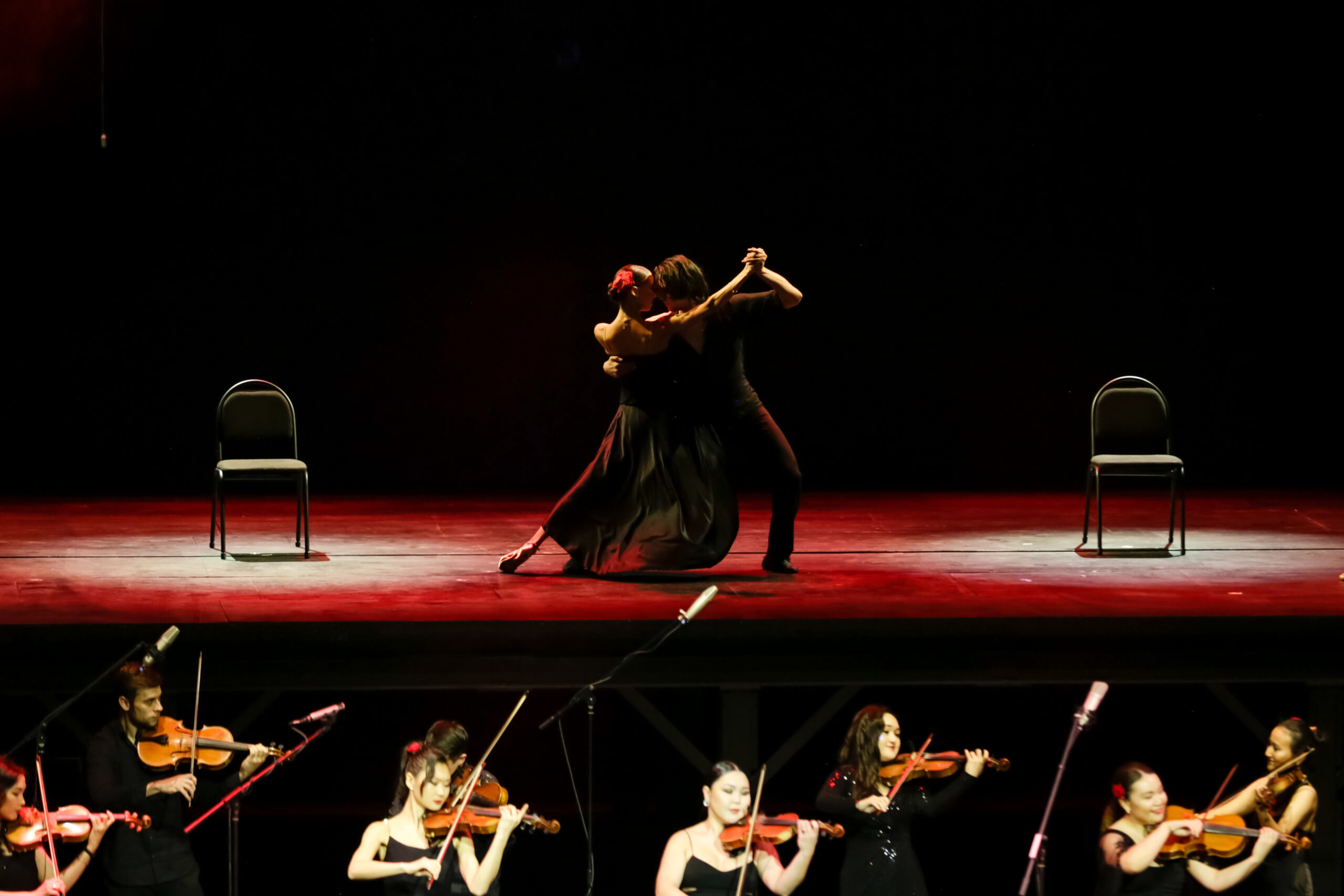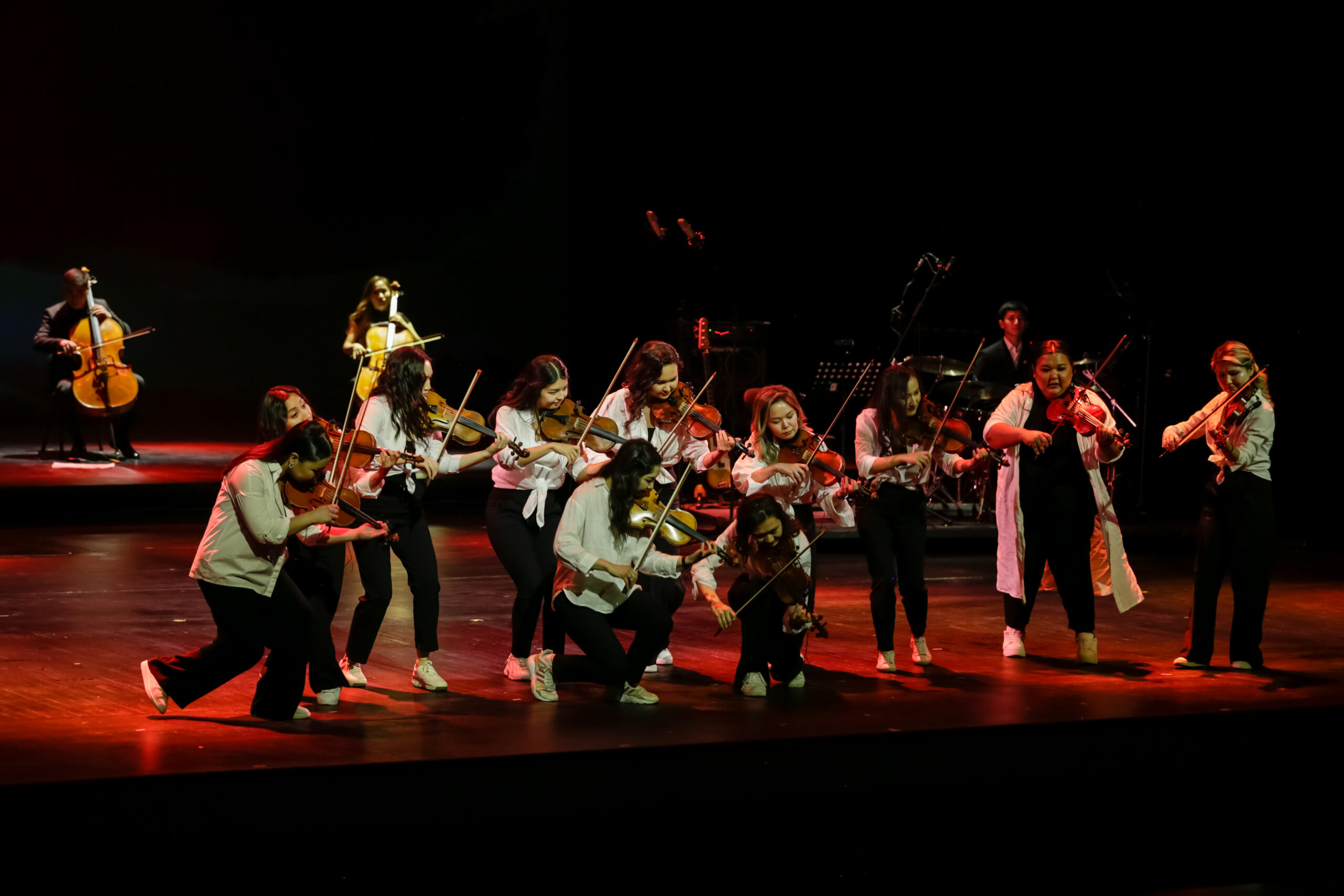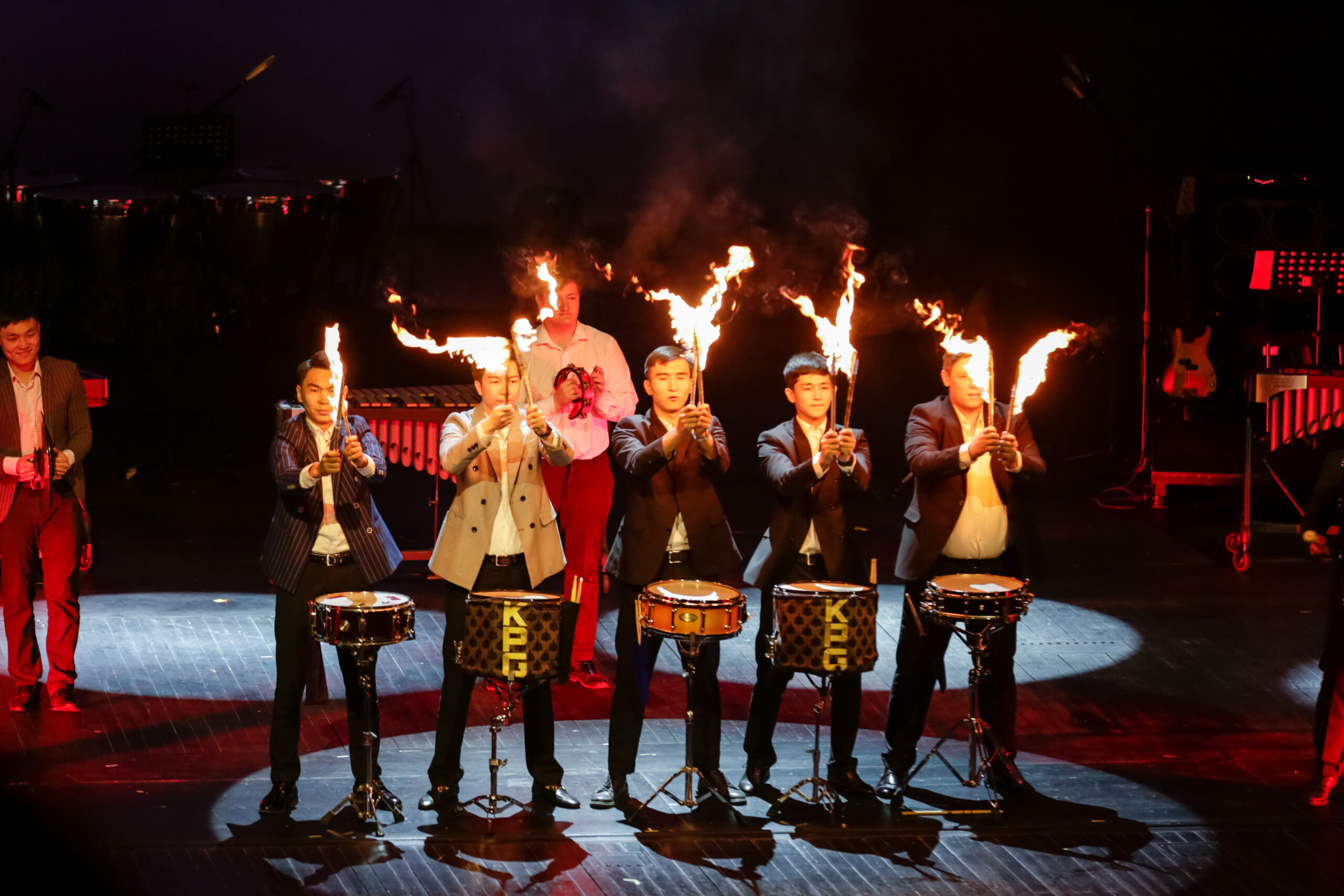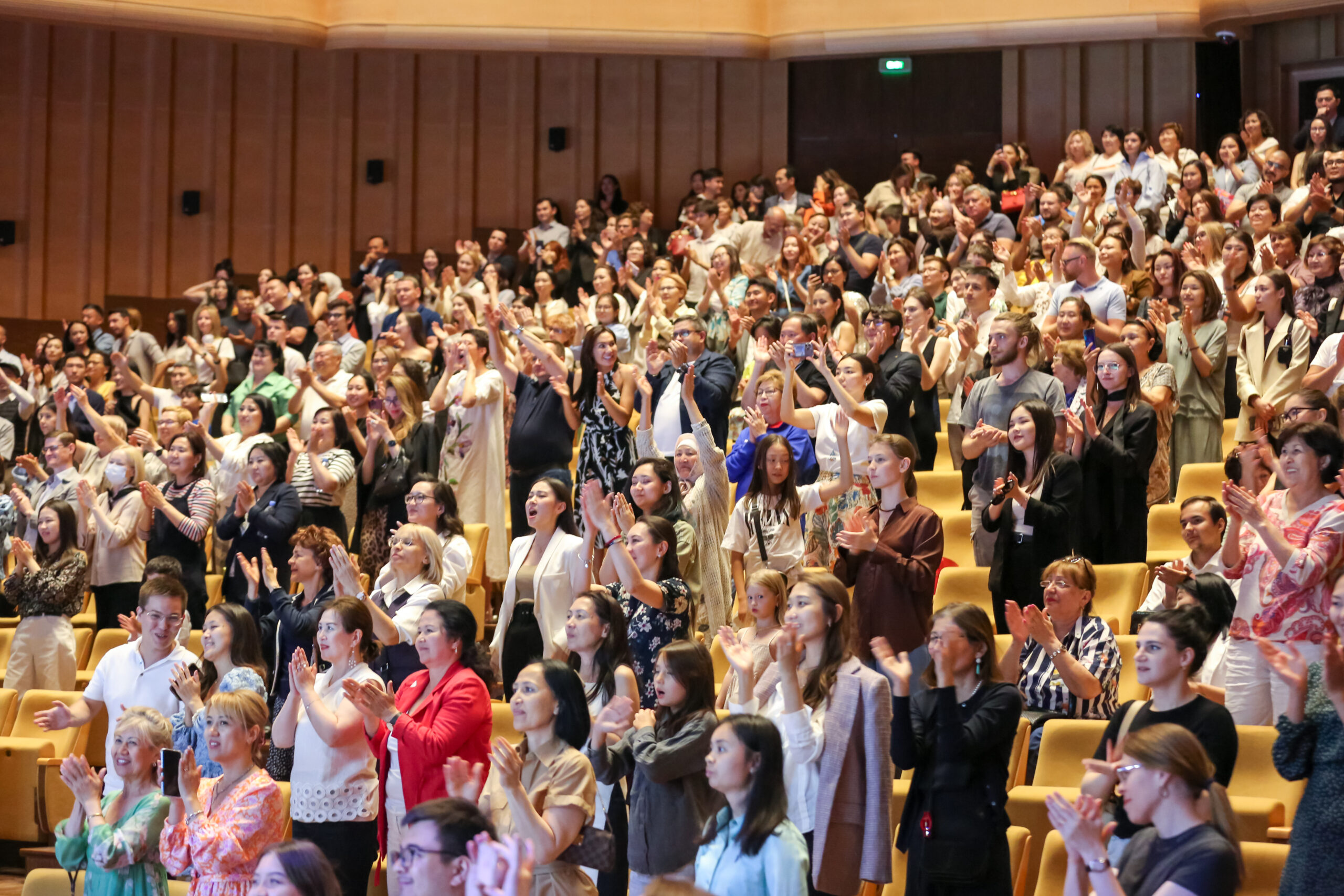ASTANA – Astana Ballet’s orchestra charmed its audience with vibrant jazz, classical and contemporary hits in an original interpretation during the Non Classica show program on June 16.

Non Classica show program combined elements of classical music in original interpretation and ballet. Photo credit: Astana Ballet press service
The classical music industry, with its unchanging, formal setting for music, may have made the audiences less interested, but in Non Classica, music brought musicians into a state of play. The concert proved that Astana Ballet is home to diverse and collaborative orchestra performers who approach the music with a creative drive.
Aizhan Khaidar, orchestra manager, referred to the concert as a “creative step forward” for the orchestra.
“When we perform classical music, we put a lot of effort into composing the repertoire and the narrative so that as many people as possible fall in love with it right away. This time we decided to please the audience with a unique show program, which will give the mood of the vacation season and warm summer evenings,” she said.

The orchestra musicians, who typically occupy the substage area, presented a unique performance on the main stage, engaging in choreographed movements. Photo credit: Astana Ballet press service
“Another important goal is to introduce our listeners not merely to the orchestra but to real artists, who feel their audience and love the stage immensely,” she added.
A genre-bending piece, the concert is written for both musicians and ballet dancers. Elements of classical music, jazz and contemporary songs, as well as a fire show demonstration, appear in the concert.
“This is the first time in the theater’s history that a real fire has been used in a concert. Technically, this is a very complicated concert, and all our units are involved: the stage will move, and there will be frequent changes of scenery,” said Khaidar.

Drum players demonstrated a fire show for the first time on the stage of Astana Ballet. Photo credit: Astana Ballet press service.
When the pianist’s hands fly across a grand piano into jazz to play Claude Bolling’s “Suite for Flute and Jazz Piano Trio,” the audience meets three flute soloists whose innovative sounds liberate the jazz genre for new audiences.
“Jazz sounds and listens easily, but in performance, it is not easy at all,” said Khaidar.
A ballet duet flits between delicate cello compositions performing the “Phantom of the Opera” by Andrew Lloyd Webber.
The heightened interactivity and physicality go into play during John Kander’s “New York, New York” as performers go into the audience.
Audiences also got the chance to see the performers at closer range during “La Virgen de La Macarena,” a Spanish folk song. Performing musicians, like actors, embodied the music and expressed their relation to it.

The audience responded warmly with a cheerful round of applause. Photo credit: Astana Ballet press service.
The audience responded warmly with a cheerful round of applause after each performance. Nothing thrills a classical music crowd more than a new interpretation that attempts to strip away the preconceived ideas about conventional music.
